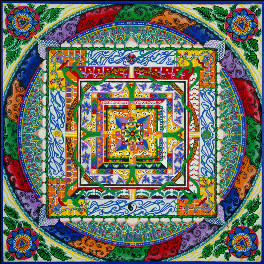

| To
the annoyance of adults in positions of authority, I intuited at an
early age that truth is a value worthy of pursuit, and that observation
and systematic doubt are essential to obtaining that
value. Progressing through adolescence and early
adulthood, this insight eventually manifested itself as a
problem. Fueled by tales of human drama and oppression from
writers such as Zola,
Tolstoy,
Stowe,
Sinclair
and Kosinski,
I cultivated the clichéd notion of youth, that human nature
is essentially corrupt, and that social structures exercising power
manifest this corruption and should be categorically opposed.
This sensibility later became moderated and focused. Alexander Solzhenitsyn's epic report of the tools and methods of totalitarian control raised the specificity of my awareness; informing that reading were the unfolding final events of Soviet history such as the Gdansk shipyard uprising, the reform campaign of Mikhail Gorbachev, the Chernobyl disaster, the withdrawal from Afghanistan, and the fall of the Berlin Wall. At home were landmark events such as the rise of Neoconservatism, the deregulation and collapse of the savings and loan industry, and the breakdown of Constitutional order manifested in the Iran-Contra Affair. Readings from the scientific community were the next order. In quick succession I discovered the key works of Rachel Carson and Donella Meadows. The underlying thesis of these and similarly concerned works is that the global ecosystem provides a set of conditions which support life, and that it is possible to engage levels of human activity which degrade those conditions. Considering this in conjunction with the potential consequences of the Hubbert peak, the continuous growth of the global fossil-fuel based economy would seem to be an issue deserving popular attention. Moreover, the evidence indicates that the timeframe in which effective remedial action is possible may not be indefinite. "The Climate of Man" by journalist Elizabeth Kolbert: Part 1 | Part 2 | Part 3 |
| Reality and the path of
hope lie
somewhere between the Pollyannas and nihilists of the world.
My own case is biased toward the belief that people, by exercising
individual volition, can employ humanist sensibility and empirical
rationality in proper measure to arrive at a set of
priorities. These in turn enable the actions toward
incremental goals which serve to optimize the condition of humans and
the world in general. |
||
|
|
 |
|
In pursuit of this belief, I am a "card carrying member" and/or have done volunteer work with various local, national and global organizations including The Climate Reality Project, Greenpeace, Amnesty International, the American Civil Liberties Union, Second Harvest Food Bank, Save Our Wetlands, The Urban Conservancy, Faubourg Marigny Improvement Association, New Orleans Food Community, NOLA-Palestine Solidarity, and NPR affiliate WWNO. |
||